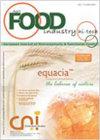Molecular Docking for the Functional Properties Evaluation of Plant Stabilizing Particles in the Emulsion Food Systems
Q Engineering
引用次数: 0
Abstract
Good nutrition determines Human health; however, the current state of this issue requires a new approach focused on the maximum useful nutrient extraction from natural raw materials. To justify the nutraceutical composition use in food systems, a man has to evaluate the possibility of preserving their bioactivity in the final product. The convergent approach application enables to combine the achievements of various scientific fields. When developing emulsion food systems, a man supposes to use plant stabilizing particles. In the thesis framework the researchers scrutinized macromolecular compounds of a carbohydrate nature. Fucoidan, alginates, and resistant starch have proven bioactive properties and can act as functional and technological food ingredients. Modern molecular modeling methods enable to evaluate and predict the components docking within the food matrix comprehensively. Strict adherence to the conduction methodology of molecular docking with a high degree of reliability ensures the result. The study deals with the issue of the affinity and selectivity of antitumor and immunomodulatory receptors with polysaccharides isolated from plant materials. A man determined that fucoidan had a direct impact on cancer cells by stopping the cell cycle and inducing apoptosis. Docking studies revealed a strong binding affinity for Lactobacillus towards amylose (–9.2 kcal/mol), then alginate (–6.3 kcal/mol), and fucoidan (–6.2 kcal/mol). Thus, the suggested method is very promising for determining the possible nutrient bioactivity preservation in the case of its use as a bifunctional component in emulsion food systems.乳状食品体系中植物稳定颗粒功能特性评价的分子对接
良好的营养决定人体健康;然而,这一问题的现状需要一种新的方法,侧重于从天然原料中最大限度地提取有用的营养。为了证明在食品系统中使用营养成分是合理的,人们必须评估在最终产品中保留其生物活性的可能性。趋同方法的应用可以将各个科学领域的成果结合起来。在开发乳剂食品系统时,人们应该使用植物稳定颗粒。在论文框架中,研究人员仔细研究了碳水化合物性质的大分子化合物。岩藻聚糖、海藻酸盐和抗性淀粉已被证明具有生物活性,可以作为功能性和技术性的食品成分。现代分子建模方法能够全面评估和预测食物基质中各组分的对接。严格遵守分子对接的传导方法,保证了结果的高度可靠性。本研究探讨了植物多糖对抗肿瘤和免疫调节受体的亲和力和选择性。一个人确定岩藻糖聚糖通过阻止细胞周期和诱导细胞凋亡对癌细胞有直接影响。对接研究显示乳酸菌对直链淀粉(-9.2 kcal/mol)、海藻酸盐(-6.3 kcal/mol)和岩藻糖聚糖(-6.2 kcal/mol)具有很强的结合亲和力。因此,在乳化液食品系统中作为双功能成分使用的情况下,所建议的方法非常有希望确定可能的营养生物活性保存。
本文章由计算机程序翻译,如有差异,请以英文原文为准。
求助全文
约1分钟内获得全文
求助全文

 求助内容:
求助内容: 应助结果提醒方式:
应助结果提醒方式:


